Pros and Cons of Living in Auckland: Your Complete Guide [2024]
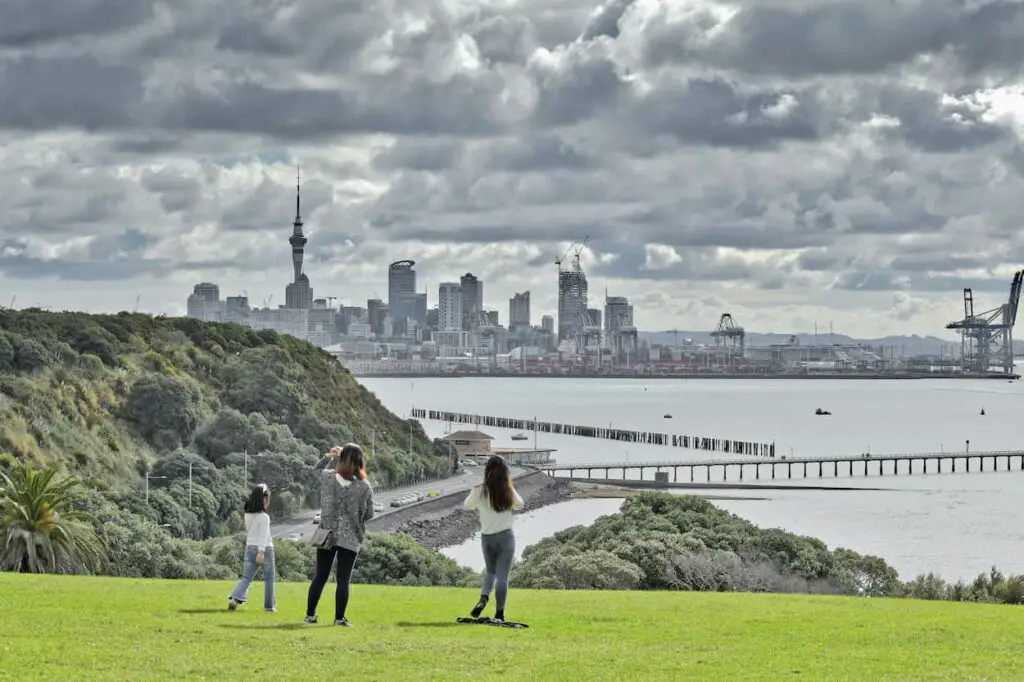
Moving to Auckland might be one of the biggest decisions of your life, so think long and hard about the pros and cons of living in this busy city. Whether it be for a job, education, or a permanent home, Auckland is undeniably a great choice, but it’s surely going to take a while to adjust.
Pros of living in Auckland
- Beaches
- High salaries
- Family-friendly lifestyle
- Public transport
- Plenty of hospitals and schools
- Excellent education system
- Diverse job and career opportunities
Cons of living in Auckland
- High house prices
- High cost of living
- High crime rates
- Hustle of the big city
- Lots of traffic
- No feel of the true New Zealand
Auckland is an attractive and glamorous place to live in. But don’t be fooled by its looks. If you want to know how to navigate your way through life in Auckland, keep on scrolling!
Related: Best cities to live in New Zealand.
Living in Auckland: all you need to know
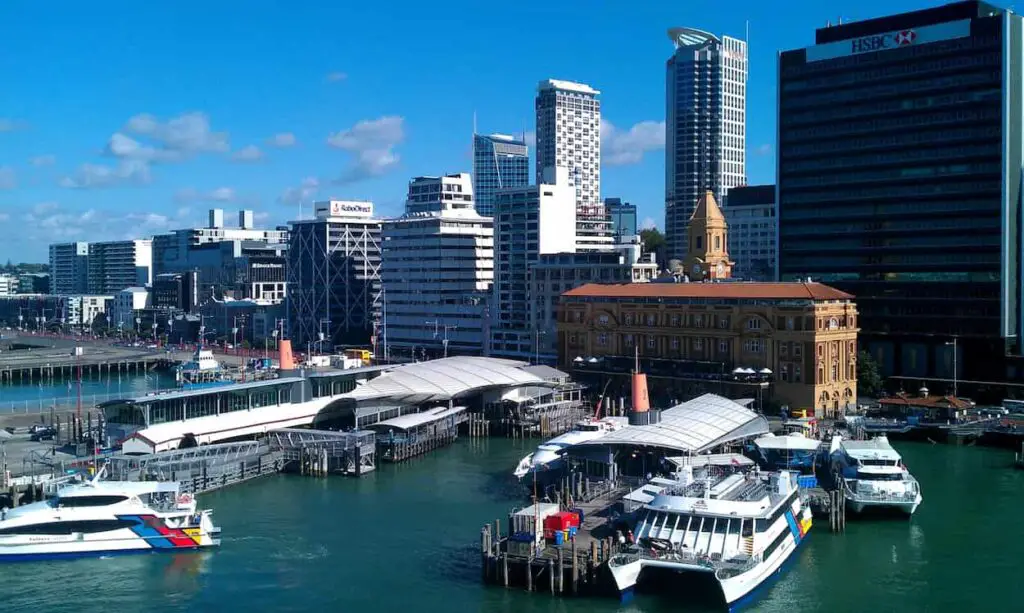
Auckland is a large metropolitan and urban city on the North Island of New Zealand.
It’s the fifth largest city in Oceania and the largest one in New Zealand, with a population of 1,440,300.
Auckland is at the top of tourist attraction cities in New Zealand for its beaches, cafes, the iconic Sky Towers, and for being the hub of business and marketing.
It’s the most developed city in New Zealand and attracts a large number of locals and tourists alike for a good and stable chance at life.
All the suburbs are bubbling with natural beauty, culture, an independent lifestyle, and flourishing industries.
If you are considering living in Auckland, then it might be the best decision of your life. It may not be the capital, but it is the largest, most cosmopolitan city with so much to offer.
Living in Auckland is more of a good decision than a bad one. This is because the good outweighs the bad, and the bad can be dealt with by alternating with the good.
Auckland offers a bright, busy lifestyle, excellent education institutes, a booming job market, and a relaxed and friendly environment for family life. The cost of living and traffic may be an issue, but considering other things such as salaries and public health care — there is no better choice for you!
Auckland may seem perfect, but the choice is yours to make. Here is the list of the pros and cons of living in Auckland.
Also read: Pros and cons of living in Wellington.
Pros of living in Auckland
1. Beaches
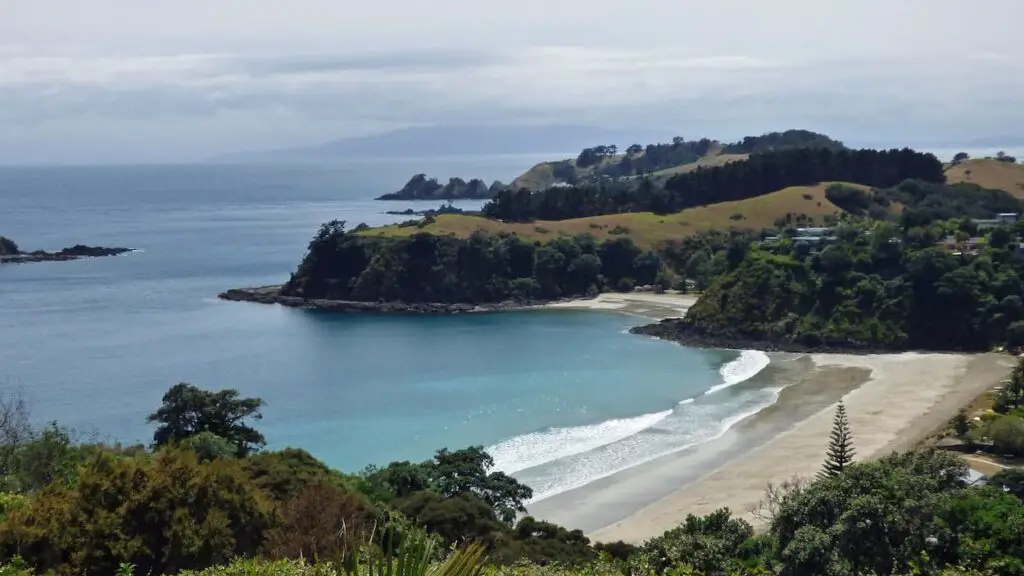
Auckland is home to some of the most amazing beaches in the country. With more than 80 beaches to choose from, this place is stunning. The warm and coastal waters provide a chance for fun along with relaxation for the Kiwis.
From sandy lanes to picture-perfect sunsets, secret coves, and vibrant shores — the beaches in Auckland are a big pro for living here. Whether you’re searching for outdoor activities, a weekend getaway, or just love being near water, Auckland is the choice for you!
Onetangi, Mission Bay, Anchor Bay, Piha, Whatipu, Takapuna, Long Bay, and Cheltenham are just some of the popular options. All of these beautiful beachy surroundings of Auckland are located at a distance of one hour drive or less from various suburbs. So, the best part is that you don’t have to venture too far beyond the city limits to get there!
2. Family-friendly lifestyle
Auckland is a good choice for living with the family. This is mainly because it offers a very family-friendly lifestyle with lots to explore. Whether you are living with kids, teenagers, or adults, Auckland knows how to accommodate you to the best of your interest.
Despite being the largest and most populated city in New Zealand, with 1.44 million people residing, Auckland provides a safe and comfortable environment for families. It’s less crowded and fulfills all the desires of a family — job, schooling, healthcare, recreational activities, travel, and education.
The social life here boasts of offering a family-friendly lifestyle where people can enjoy life to its best. You will find people having fun at the beach, going to social clubs at the weekend, enjoying their schooling and working experiences, loads of sports grounds, and partying at cafes and restaurants.
3. Public transport
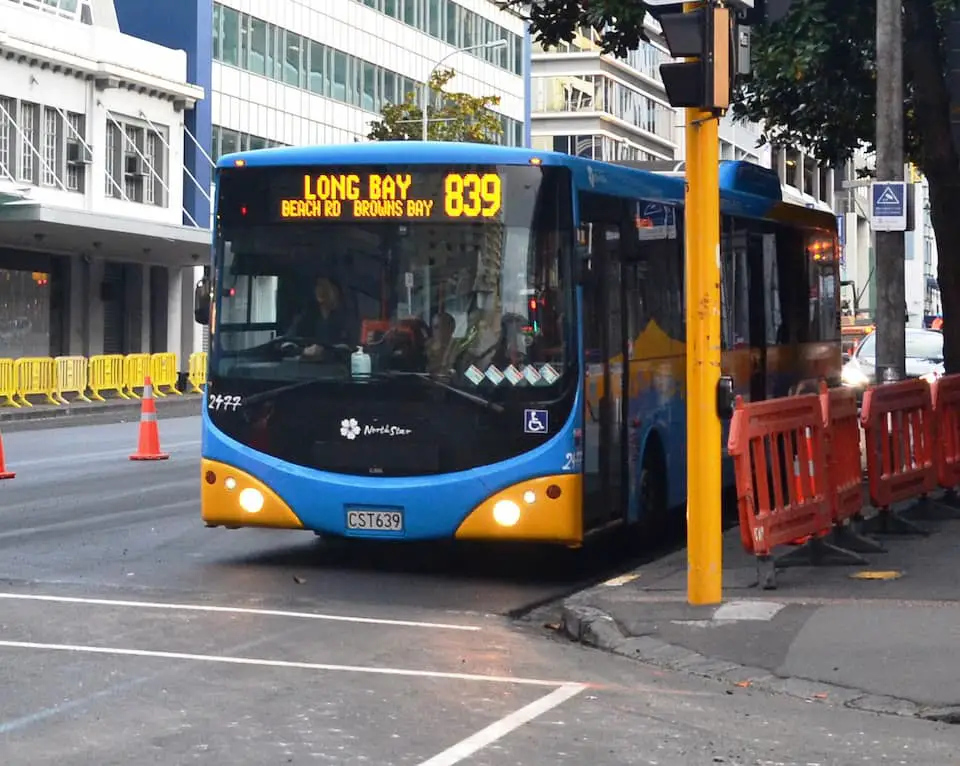
Even if you own a car, dealing with the horrible traffic in Auckland means you will need to have access to the public transport system at some point or the other. Auckland is an accessible city that offers city-wide public transport by car, bus, train, or ferry.
With such a multimode public transport service that runs around anywhere and everywhere in the city, Auckland is an easy place to explore and live in, with or without actually owning a car.
It doesn’t matter whether you need it for a ten-minute ride or going from one suburb to another; the public transport system in Auckland has various services to suit your frequency and times.
The situation of facilities and services – all are quite ideal. So, if you are going to live here, the means of public transport will make it easier for you.
4. Healthcare and schooling options
The public healthcare system in New Zealand might not be ideal, but the situation in Auckland is quite good. There is an abundance of nurses and GPs making it easy to access healthcare anywhere in the city.
If you’re a citizen of New Zealand, a permanent resident, or hold any long-term visa, you’re eligible for free or discounted healthcare services. Fertility services, inpatient and outpatient treatments, annual checkups, and basic support are available without any hurdles.
Hospitals and clinics in all suburbs of Auckland provide high-quality facilities and medical care. General Practitioners and nurses are trained and experienced in dealing with people from various cultures and languages – this means no language or cultural barriers in accessing healthcare facilities.
Besides healthcare, if you want to figure out whether a city is worth living in or not, take a look at its educational facilities. Worry not, Auckland is not going to disappoint you here, either.
The city offers a variety of private and public schools, colleges, and well-reputed universities. If you want to live in Auckland, rest assured you will be able to access the best education and training facilities in the country.
Again, the teachers are well-equipped in dealing with kids from various cultures and nationalities. Also, the abundance of tertiary institutes and universities means you wouldn’t need to move to another city for higher studies.
In terms of rankings, The University of Auckland is placed 17th in the Times Higher Education’s 2022 list of the world’s international universities, 68th in the QS Employability Rankings as of 2023, and 123rd in the US News Best Global Universities Rankings of 2023.
Compare life in Melbourne to Auckland.
5. Diverse job and career opportunities
Auckland is the hub of the international market for New Zealand, so it is easier to get a job here. Not only that but the fields and opportunities for career-making are also quite diverse.
Working in Auckland as a seasonal employee is a great way to experience the city. But if you are planning on studying or living here long term, you need to look for a stable job.
The most in-demand jobs in Auckland after the pandemic are nursing, administrative assistant, child welfare worker, psychologist, construction worker, data entry operator, farmhand, web developer — the list goes on.
Furthermore, Auckland is also home to New Zealand’s highest salaries, with an average household income of NZ$146,509 for 2022, while the national average was NZ$117,786.
Below are some typical salaries you will come across in Auckland:
- C-level executives: NZ$230,000
- Ship master: NZ$150,000
- Data engineer: NZ$131,000
- Cyber security specialist: NZ$145,000
- Dentist: NZ$140,000
- Operations manager: NZ$145,000
- Lecturer: NZ$138,000
- Researcher: NZ$123,000
- Lawyer: NZ$100,000
- Human Resources Manager: NZ$100,000
What salary can you earn in Auckland? Read more about salaries in other main cities like Wellington and Christchurch.
Career opportunities can be established in the fields of construction, business analysis, web development, teaching, nursing, engineering, marketing, manufacturing, and accounting.
Auckland does not limit or bound Kiwis and foreigners to a niche industry. Due to the city’s expanding economy and population, there is a significant demand for workers in all fields.
Having connections with the global job sector, the growth in job and career opportunities are on the move at a rapid pace.
Cons of living in Auckland
1. High house prices
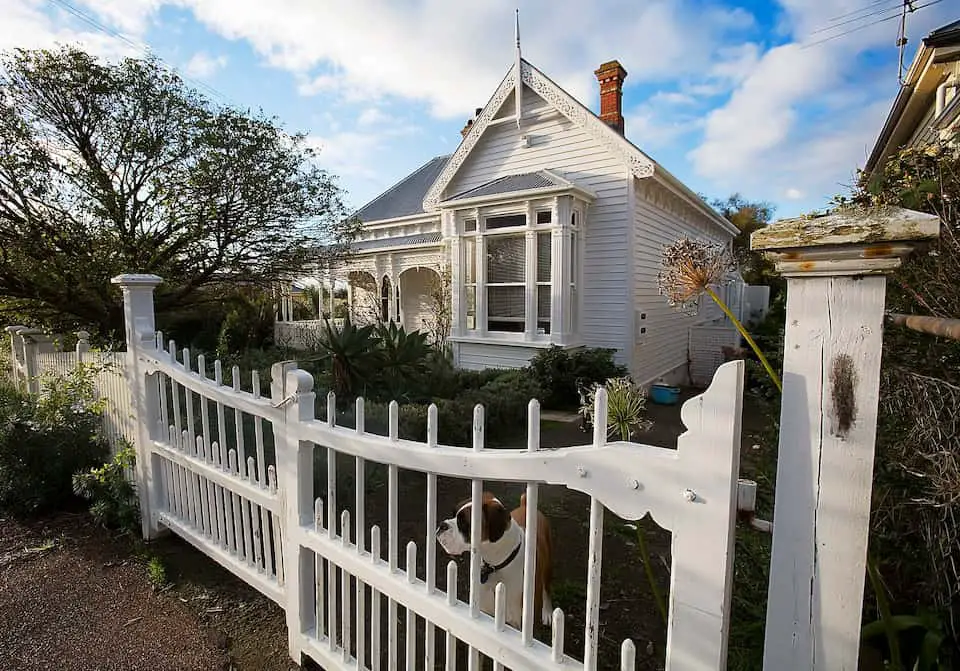
Much like the rest of New Zealand, renting a house in Auckland is easy, but paying for it might not be. However, buying a home will leave a huge hole in your pocket.
House rents are at an all-time high in Auckland. The price of purchasing property has been skyrocketing, with an increase of 6.8% from 2003 to 2023. The real estate sector has become extremely unpredictable and chaotic.
Although house prices did soar after the COVID-19 pandemic, however, house prices have fallen 21.4% from their peak as of January 2023. This may seem like house prices have decreased, but the fact remains that house prices in Auckland are still beyond reach for the majority of the population.
The median sales price for apartments is NZ$600,000, and NZ$1,230,000 for a 4-bedroom house. For an average salary, buying a home sounds like a distant dream when you consider the taxes and cost of living in Auckland.
Check out the best and the worst neighborhoods of Auckland.
2. High cost of living
The biggest disadvantage of living in Auckland is its high cost of living! Compared to the other cities of New Zealand, in Auckland, you will have to struggle to keep it stable with earnings vs expenses. What more could you run from?
Any individual with an average salary will have to constantly stay on their toes in order to survive. Generally, a single person needs about NZ$1,709 per month to live in Auckland, while a family of four would need about NZ$6,165, that’s excluding the rent.
And we’re not only talking about the house prices and average cost of living here; it includes other factors such as food, utilities, transport, personal care, and much more. Groceries cost more every day, or at least it seems so.
Rent prices per month for a three-bedroom house range from NZ$3,117 per month to NZ$3,940.
One will typically need about NZ$4,787 per month as a single to have a decent quality of life. Therefore, you should have at least NZ$60,000 in after-tax annual income.
A family of four should have around NZ$7,500 to be able to live in Auckland without a struggle.
The average salary in Auckland in 2023 is NZ$71,000 before taxes, which is about NZ$4,634 net per month. That said, according to statistical data of Number, the average monthly wage is actually NZ$5,460 (after taxes), which is just enough to enjoy the basic necessities.
Below are the average rent prices for a two-bedroom house:
| Suburb | Average rent |
|---|---|
| Auckland Central | $700 |
| Clarks Beach | $650 |
| Drury | $595 |
| Helensville | $530 |
| Kumeu | $680 |
| Orewa | $730 |
| Papakura | $600 |
| Parakai | $540 |
| Pukekohe | $570 |
| Red Beach | $670 |
| Riverhead | $680 |
| Silverdale | $755 |
| Snells Beach | $570 |
| Takanini | $680 |
| Waimauku | $650 |
| Waiuku | $530 |
3. High crime rates
Yes, Auckland is the center of attention in New Zealand, and yes, everyone wants to live there – but it also results in a constant increase in crime rates there.
Compared to the rest of the cities of New Zealand, it is a shame to say that Auckland has the highest crime rate of all. The bigger the city population is, the higher the crime rate tends to be.
On the index, crime is at 48.71, and safety is at 51.29, which doesn’t leave much of a difference between the two. The nature of most crimes falls at the moderate level between 40-50 on the safety index.
The most repeated types of crime include breaking in, stealing cars, being robbed, vandalism, theft, drugs, and physical attacks.
If you’re planning on living in Auckland, make sure you choose your suburb carefully. So of them don’t have a great reputation.
4. Lots of traffic

Everything has its pros and cons, and for Auckland, the major drawback which undermines modernization and urbanization is the traffic it has to face. And that, too, every day!
Auckland is pretty famous for how bad its traffic congestion can get on a daily basis. City life in Auckland comes with a lot of traffic jams, unnecessary car horns, and huge amounts of CO2 being released.
Most of the time, especially on weekdays when everyone is going about with their day, commuting takes considerable extra time every day. This is because of the early morning and evening peak hours following school and office timings.
In this case, it’s easier and best to rely on public transport for your travel. As mentioned, public transport is quite reliable in the city.
Also read, which city is better for living Auckland or Christchurch?
5. No feel of the true New Zealand
New Zealand it’s about provinciality, simplicity, and community. It can be best seen in smaller cities, but even better in towns.
Auckland has lost its essence of the true feeling of New Zealand. People come here expecting to experience what living like a Kiwi is like, but it’s all changed now.
Especially after the COVID pandemic, Auckland doesn’t represent wider New Zealand. With the rapid change in the industry, economy, business, and population, Auckland has shifted from its original roots to adapt to the change, moving many things online.
New Zealand is known for its rich culture, positive people, hard and diligent workers, friendly locals, appreciation of the country, and excellent food and winery. But Auckland doesn’t hold all that dear.
Auckland has changed its values to keep pace with the world and is now a renowned hub for business, urbanization, and modernization.

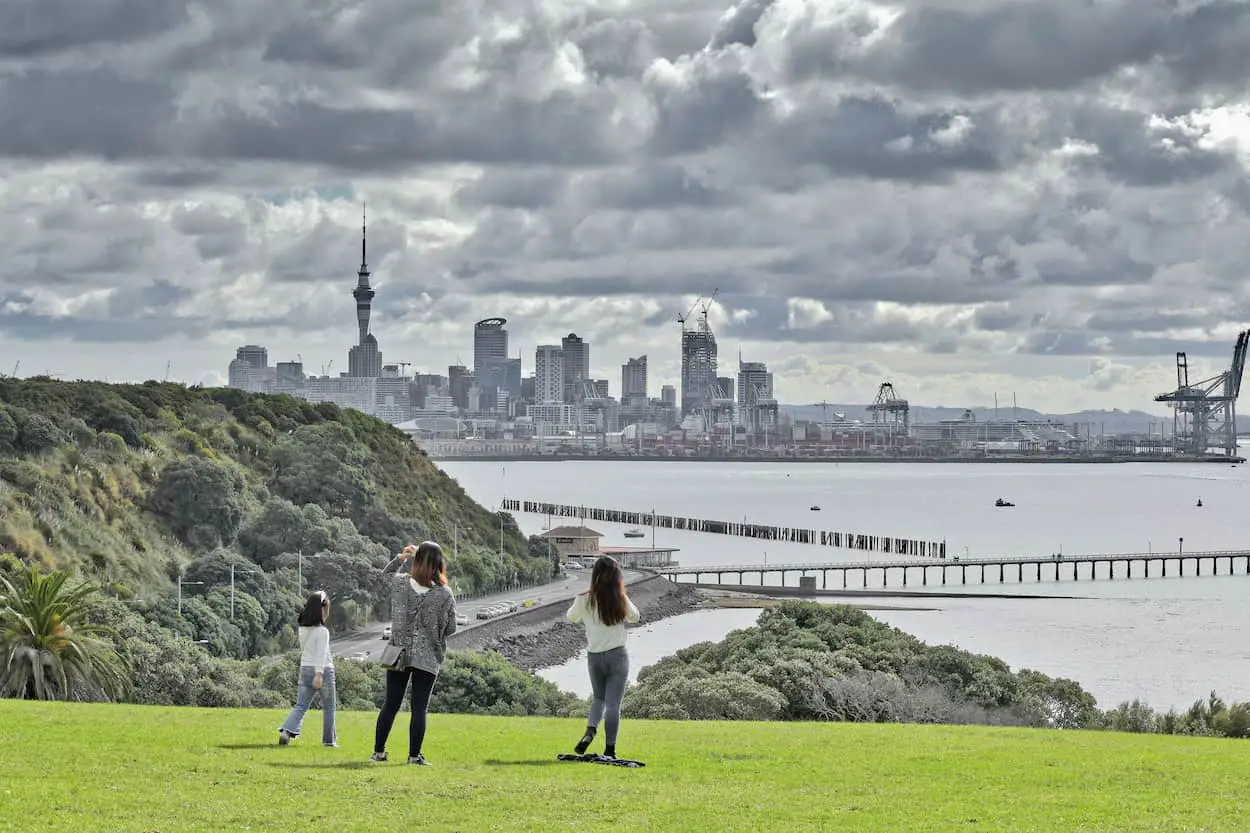

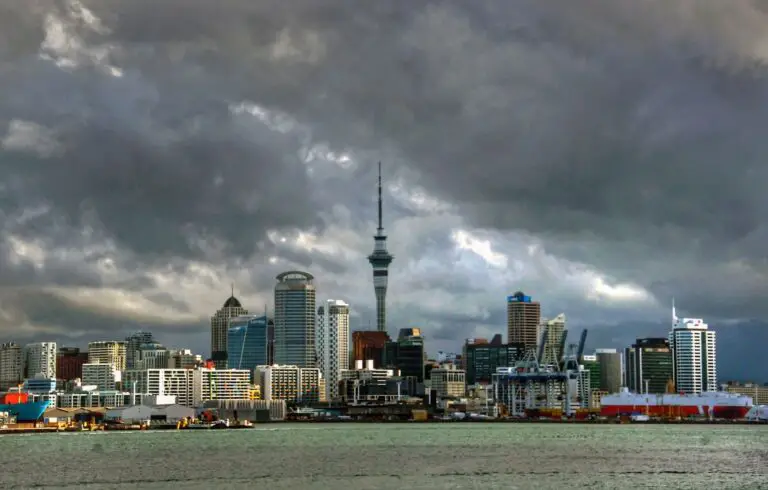

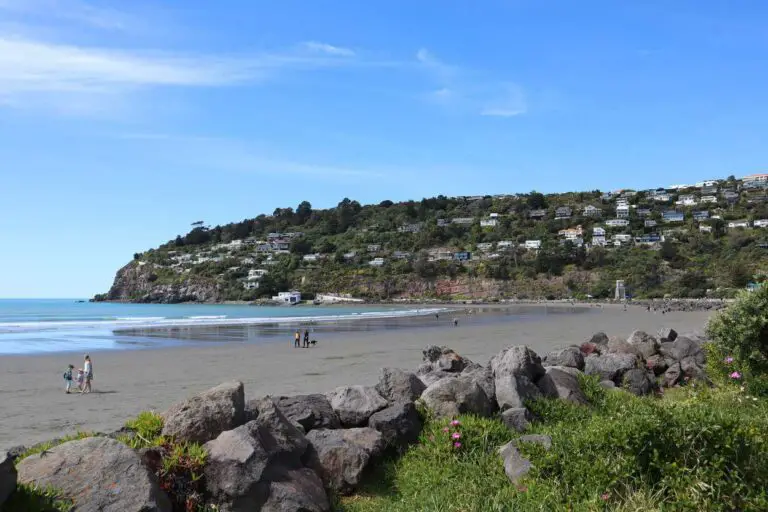

![Working Remotely in New Zealand for a US Company [2024]](https://simplenewzealand.com/wp-content/uploads/2023/06/pexels-anna-tarazevich-14751273-1-768x512.jpg)